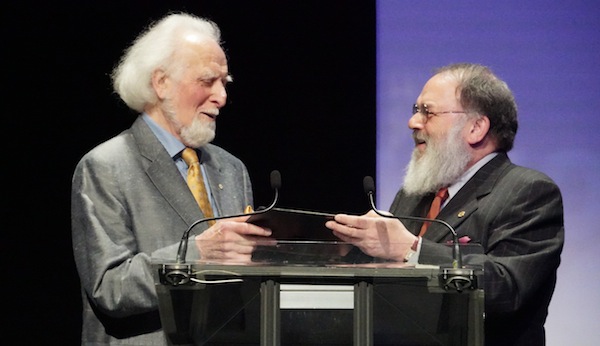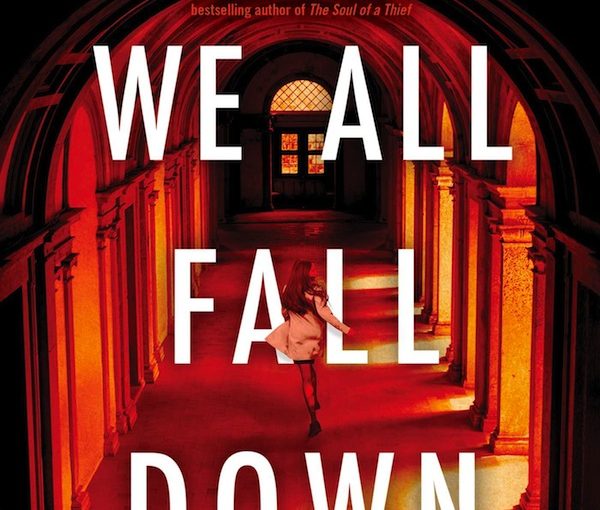With his latest novel, We All Fall Down (Simon & Schuster, 2019), Vancouver writer and emergency-room physician Daniel Kalla covers both familiar and new territory. He once again postulates with scary enough realism what might happen if there were an outbreak of a deadly disease, but this time, it’s the plague – the same bacteria that caused the Black Death in the 14th century.
Kalla, who is head of emergency at St. Paul’s Hospital and a clinical associate professor at the University of British Columbia, will talk about his new book on April 17 at Incite: Riveting Crime Tales, presented by the Vancouver Writers Fest and Vancouver Public Library, in partnership with the Crime Writers of Canada. He will be joined by fellow Vancouverite Eve Lazarus, author of Murder by Milkshake: An Astonishing True Story of Adultery, Arsenic and a Charismatic Killer (Arsenal Pulp Press, 2018), about the murder of Esther Castellani by her husband Rene in 1965 in Vancouver, and Toronto-based Kim Moritsugu, whose latest book is The Showrunner (Dundurn, 2018), described as a “Hollywood-noir, darkly humourous suspense.”
We All Fall Down is set in Genoa, Italy. It alternates between current-day events – the site of an old monastery that has been demolished to make way for new condominiums seems to be ground zero for the reemergence of the plague – and the year 1348, when that monastery’s inhabitants are almost decimated by the Black Death, as is much of Europe. There is a link between the two outbreaks and North Atlantic Treaty Organization infectious diseases expert Alana Vaughn, called in from Belgium, is among those who must figure it out, along with a World Health Organization expert, Canadian epidemiologist Byron Menke, and Alana’s former lover, Dr. Nico Oliva, who sounded the alarm when a patient was brought into his hospital, coughing up blood and with a bubo (lump, swelling) in her armpit. The patient had been working on the construction site when she took ill and was dead soon thereafter.
The rapidity with which the plague takes a life drives the urgency to determine its sources and stop its spread. The most emotive chapters of We All Fall Down are short. Kalla briefly introduces readers to various people in the midst of tender or happy moments, who then suddenly feel chilled or choked by phlegm and blood. These scenes add meaning to the consistently provided death tolls, and personalize the suffering. Readers will empathize, and shiver.
As in his previous novels – Pandemic (Forge Books, 2005), about a fictional new flu, more deadly than SARS, and Resistance (Tor Books, 2006), about the outbreak of an antibiotic-resistant bacteria – the disease in We All Fall Down is deliberately being spread. Initially, Alana’s theory is that it is bioterrorism, but eventually the WHO-led team comes to another conclusion and the race is on to find the perpetrator.
In the mid-1300s, one-third to a half of the European population was killed within three years, a character in the novel notes – “The worst natural disaster in all of recorded history.” And the novel offers a glimpse into that horrific time via the diary of a barber-surgeon, Rafael Pasqua, who lost his wife to the plague. His story is graphic at times, and it is he who relates how Jews were attacked and persecuted, as the assumed cause of the devastation. Kalla juxtaposes this persecution and violence with that of Muslims in the modern-day instance of the outbreak, as it is first thought that Muslim terrorists might have developed the plague as a bioweapon. Despite hundreds of years of evolution, people’s fear and desperation still drive them to seek a scapegoat.
Less interesting in We All Fall Down are the romantic storylines: Alana and Nico dealing with their past relationship, Alana’s new relationship with Byron, and Rafael’s with Camilla, the daughter of a Jewish friend and fellow physician. At least the medieval love story adds some tension to the plot, as Jews become more and more at risk as the plague continues unabated. And, in truth, the relationships provide some respite from the death taking place all around the characters.
On the whole, We All Fall Down is a good read. Kalla, being an emergency physician who has researched and written about different pandemics, makes the possibility of the Great Plague resurfacing seem frighteningly possible. There are countless benefits of globalization, but it certainly makes containment of an epidemic that much harder. It is a sobering thought.
Incite events are free, but registration is required. To attend Riveting Crime Tales, which takes place in the Alice MacKay Room at the central branch of VPL downtown at 7:30 p.m. on April 17, fill out the form at writersfest.bc.ca/programs/incite/incite-form.



